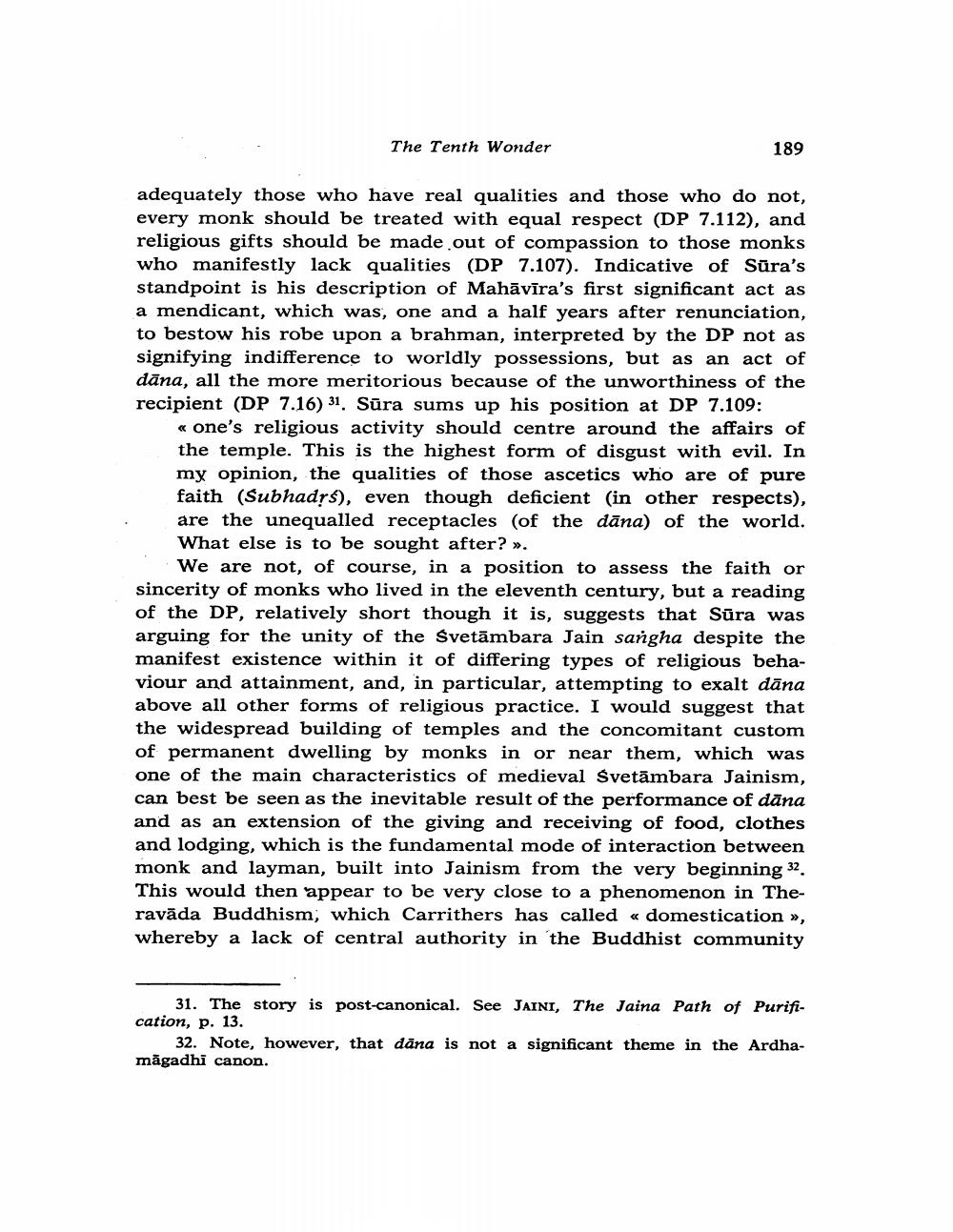________________
The Tenth Wonder
189
adequately those who have real qualities and those who do not, every monk should be treated with equal respect (DP 7.112), and religious gifts should be made out of compassion to those monks who manifestly lack qualities (DP 7.107). Indicative of Sūra's standpoint is his description of Mahāvīra's first significant act as a mendicant, which was, one and a half years after renunciation, to bestow his robe upon a brahman, interpreted by the DP not as signifying indifference to worldly possessions, but as an act of dāna, all the more meritorious because of the unworthiness of the recipient (DP 7.16) 31 Sūra sums up his position at DP 7.109:
« one's religious activity should centre around the affairs of the temple. This is the highest form of disgust with evil. In my opinion, the qualities of those ascetics who are of pure faith (Subhadrs), even though deficient (in other respects), are the unequalled receptacles (of the dāna) of the world. What else is to be sought after? ».
We are not, of course, in a position to assess the faith or sincerity of monks who lived in the eleventh century, but a reading of the DP, relatively short though it is, suggests that Sūra was arguing for the unity of the Svetāmbara Jain sangha despite the manifest existence within it of differing types of religious behaviour and attainment, and, in particular, attempting to exalt dāna above all other forms of religious practice. I would suggest that the widespread building of temples and the concomitant custom of permanent dwelling by monks in or near them, which was one of the main characteristics of medieval Svetāmbara Jainism, can best be seen as the inevitable result of the performance of dāna and as an extension of the giving and receiving of food, clothes and lodging, which is the fundamental mode of interaction between monk and layman, built into Jainism from the very beginning 32. This would then appear to be very close to a phenomenon in Theravāda Buddhism, which Carrithers has called « domestication », whereby a lack of central authority in the Buddhist community
31. The story is post-canonical. See JAINI, The Jaina Path of Purification, p. 13.
32. Note, however, that dāna is not a significant theme in the Ardhamāgadhi canon.




